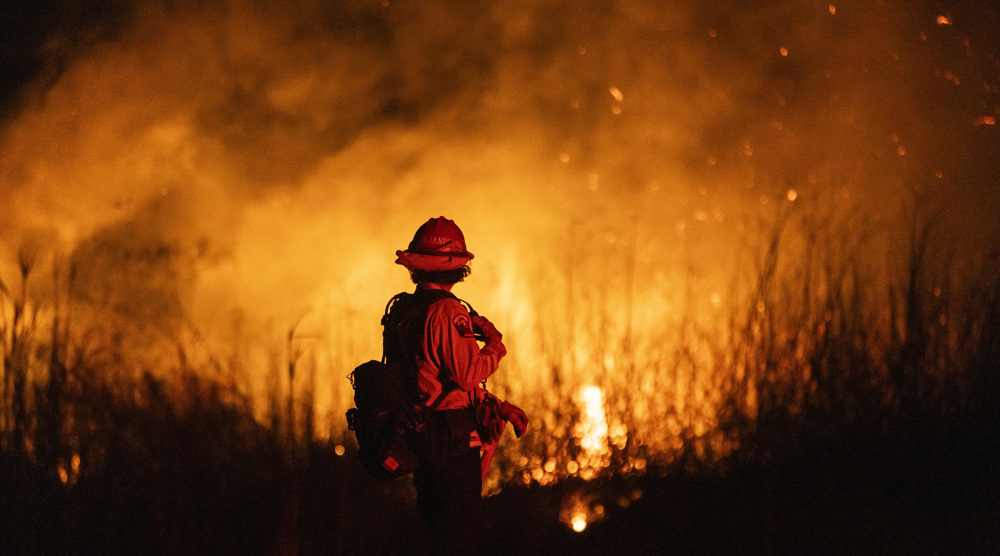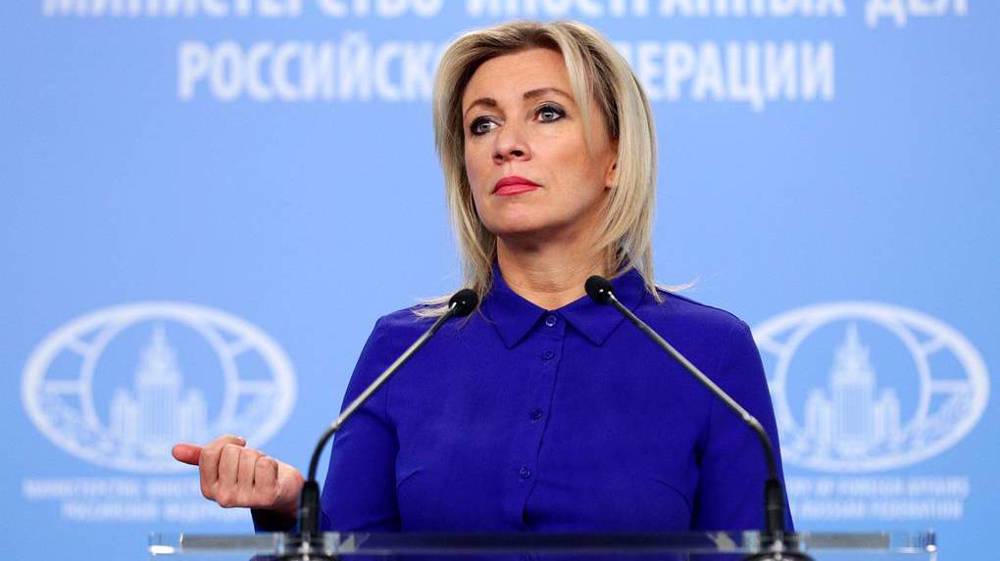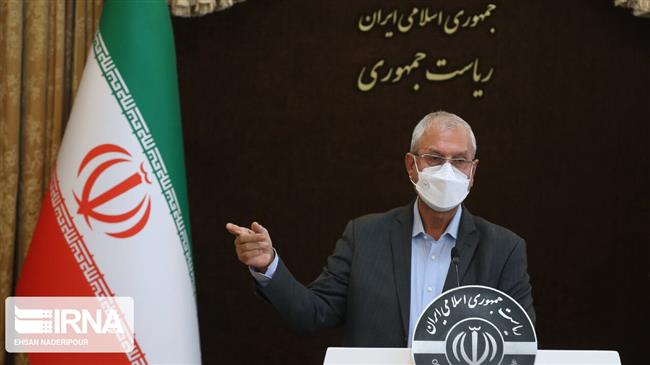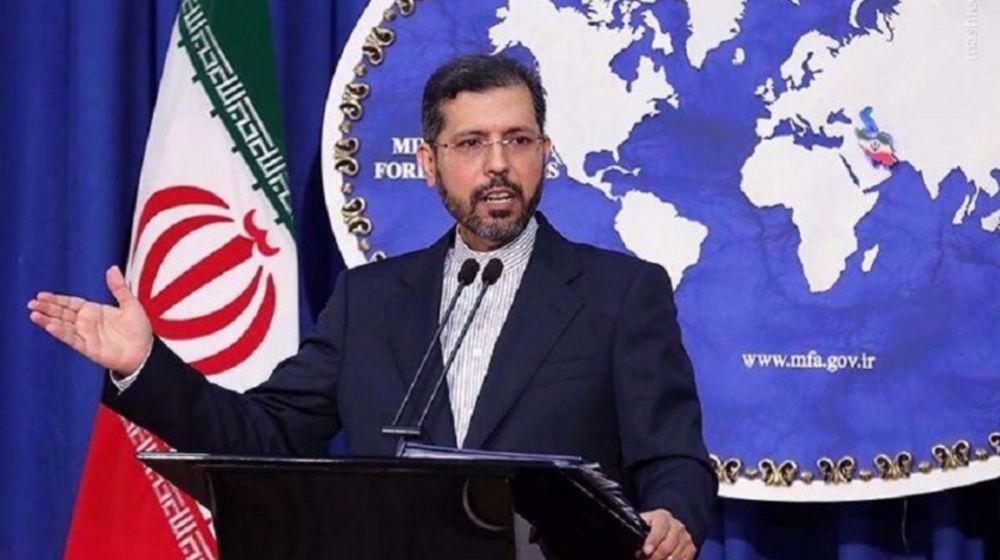Zarif remarks counter integrated nature of Iran’s foreign policy system: Experts tell Press TV
Experts tell Press TV that leaked remarks by Iran’s foreign minister, in which he suggested existence of friction between some parts of the Iranian foreign policy development mechanism, run counter to the mechanism’s actual integrated nature.
University professor Foad Izadi and political analyst Mostafa Khoshcheshm made the remarks in a live interview on Monday.
The leaked audio file featured the top diplomat Mohammad Javad Zarif’s suggesting that Iran’s foreign policy had been “sacrificed” in favor of the activities of the Quds Force of Iran’s Islamic Revolution Guards Corps (IRGC) and the preferences of the force’s revered martyred commander Lieutenant General Qassem Soleimani.
On Sunday, Leader of the Islamic Revolution Ayatollah Seyyed Ali Khamenei rebuked the foreign minister over the latter’s “wrongful” remarks. Ayatollah Khamenei underlined that "a country’s plans include military, scientific, cultural, and diplomatic plans, and their totality makes up a country’s policy.
“In the Islamic Republic, the foreign policy is determined at the Supreme National Security Council (SNSC) in the presence of the country’s authorities, and the Foreign Ministry should implement it using its own methods,” the Leader added.
Ayatollah Khamenei hailed the Quds Force as “the biggest effective factor” that prevented Iran from leading a “passive diplomacy” in the West Asia region. The Leader, therefore, strongly criticized Zarif’s remarks for their resemblance to the comments that were made about the country by its enemies.
Mr. Izadi said Zarif’s remarks had suggested existence of a “competition” between the Foreign Ministry and the Quds Force in their shared duty to help devise the country’s foreign policy. Such allusion “is something that is [in fact] detrimental to a country’s foreign policy,” he said.
He went on to describe the multi-faceted quality of the mechanism that comes up with the country’s foreign policy.
“…Iran’s [Supreme] National Security Council has 12 members. The foreign minister is a member of the SNSC and has one vote out of 12. So, the suggestion that every time, the foreign policy of the country should be in line with what the foreign minister things is not really based on Iran’s Constitution,” the academic said. The Constitution’s Article 176 has essentially stipulated this, he emphasized.
In no other country, the foreign ministry is tasked with making all the foreign policy decisions, he added, saying the apparatus rather implements the policy that is devised by a complex of various sectors.
Quds Force’s role in regional policy
According to the academic, the Quds Force is charged with engaging outside Iran’s borders. He cited its contribution to Iraq and Syria’s anti-terror fight at the countries’ own respective request as instances of such regional involvement.
“What General Soleimani did was….he engaged in political issues [too] that dealt with security matters in this part of the world, and he became very good at it,” Izadi stated.
“Because of what General Soleimani was able to do, the Quds Force was more than just a military force,” the professor said. He noted how foreign politicians had, themselves, attested to General Soleimani’s stance in the region, citing remarks by US Senator Chris Murphy, who recently acknowledged the power that was wielded by the martyred commander during his lifetime.
General Solaimeni was martyred along with his companions in a United States’ drone strike against Baghdad early last year.
During his career, the general won reputation as the region’s most popular and decisive anti-terror commander. He was martyred while paying an official visit to the Iraqi capital.
Khoshcheshm likewise verified that in any country, “foreign policy objectives are set and achieved as a product of power. The power that is generated by the country in various sectors.”
Accordingly, the foreign minister is not the only one devising the foreign policy, he stated.
The top diplomat might have a smaller or a bigger role in the policy, the analyst said, and cited the 2015 nuclear deal between Iran and world countries as one case, in which the top diplomat had a bigger role.
However, across the region, “because the forefront of the United States in this Middle East and West Asia region comes from its military, the US CENTCOM has the first and the last say in this region on behalf of the US,” Khoshcheshm said.
“Therefore, as they have targeted Iran in this region, Iran’s military should also be in the forefront. It should be the first and main player in this area,” he remarked, underlining the importance of the role that is played by the Quds Force across the sphere.
'Gaza has won': Social media users react to ceasefire with mix of relief, joy
Iran seeks South Korea’s assistance for AI, fiber-optic projects
VIDEO | Iran's 'Eqtedar' (Power) maneuver
Israel hits HTS military target in Syria for 1st time since fall of Assad
VIDEO | Press TV's news headlines
Israel has slaughtered 13,000 students in Gaza, West Bank
VIDEO | More Zionist than Zionists: Biden’s legacy to be defined by Gaza genocide
Hamas confirms handing approval of Gaza ceasefire deal to mediators












 This makes it easy to access the Press TV website
This makes it easy to access the Press TV website